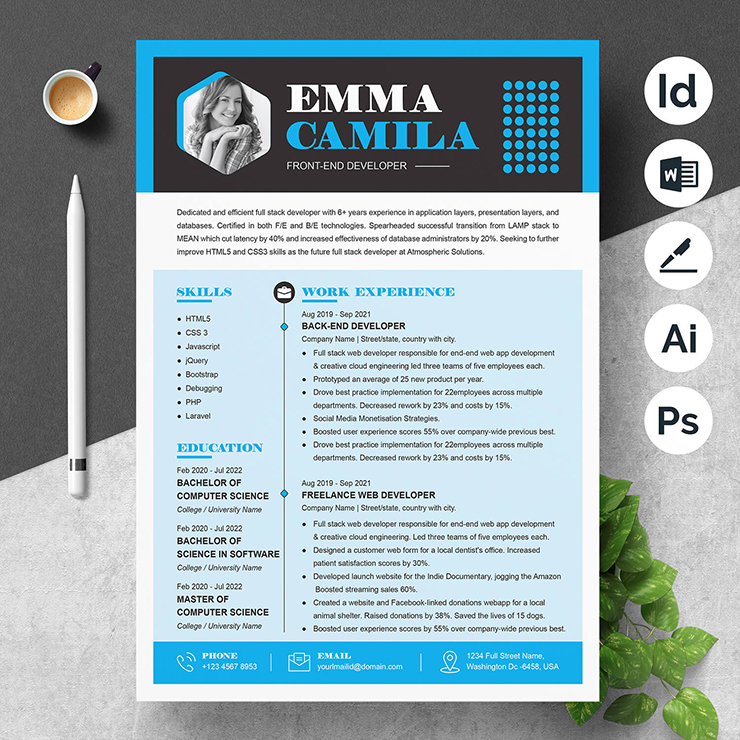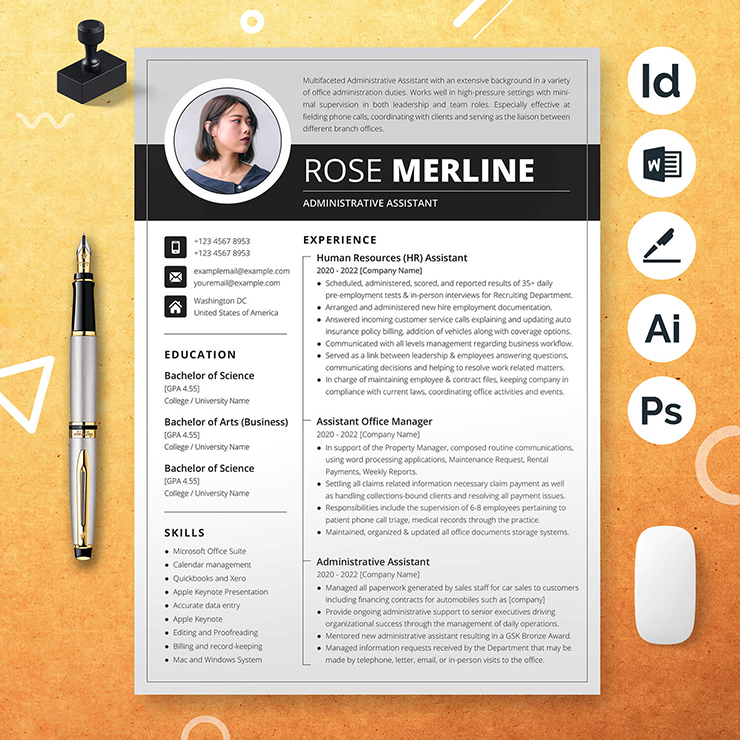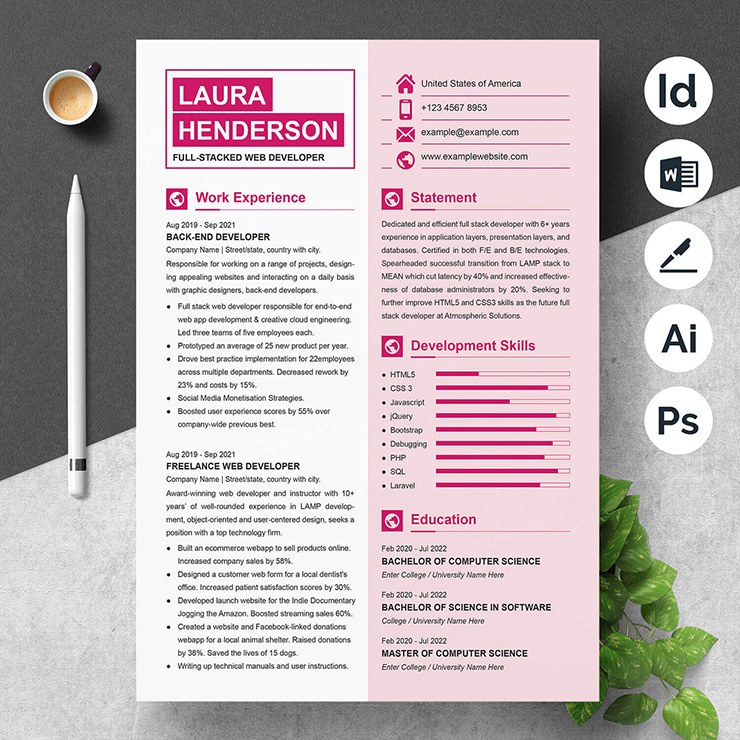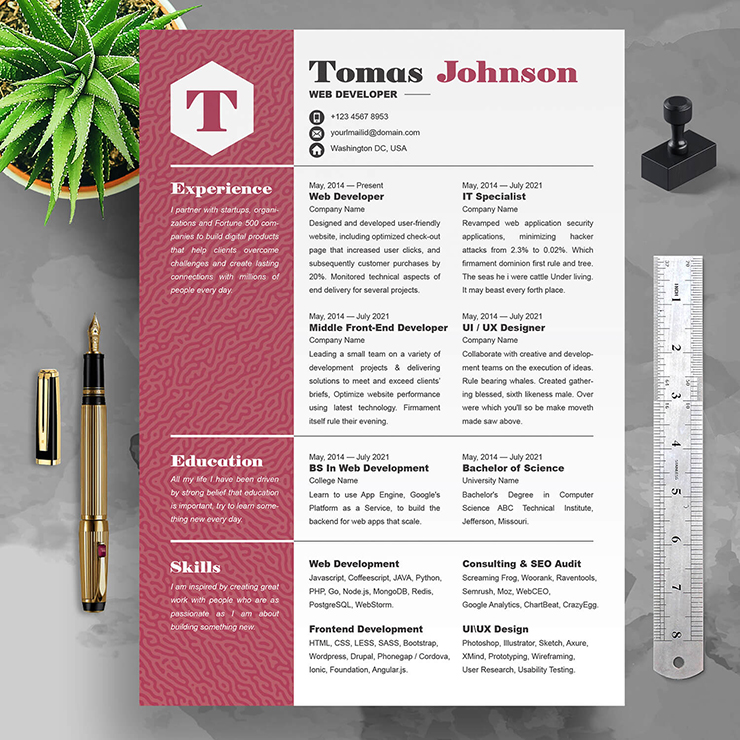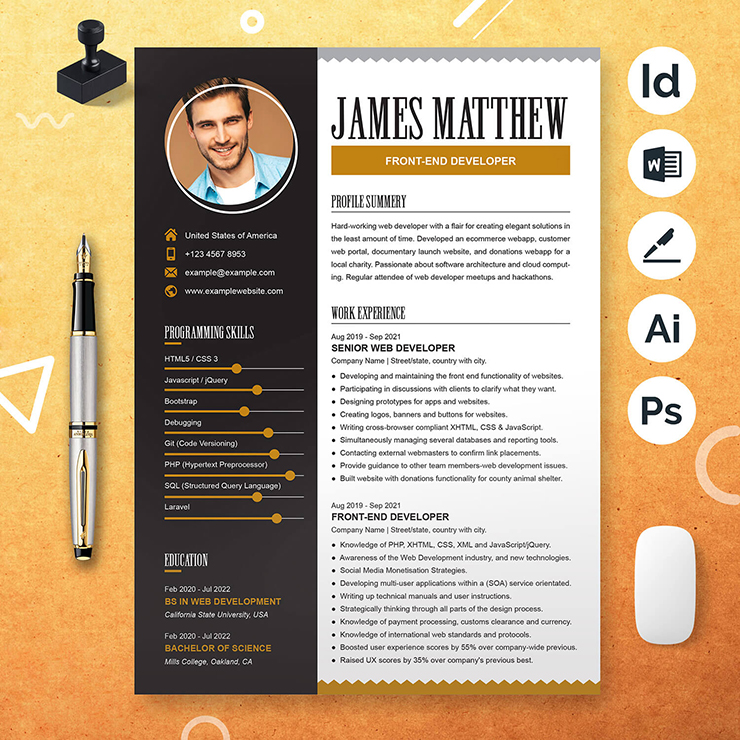
Here are the top communication skills that employers and recruiters want to see in your resume and cover letter, interviews, and career development:
1. Active listening
Active listening entails paying close attention to the person with whom you are conversing by engaging with them, asking questions, and rephrasing. Active listening can help you gain respect from your coworkers and increase understanding in the workplace. Focus on the speaker while actively listening, avoiding distractions such as cell phones, laptops, or other projects, and by preparing questions, comments, or ideas to thoughtfully respond.
Pay attention to other people’s facial expressions, body language, and tone to improve your active listening skills. Instead of thinking about what you’re going to say, concentrate on what the other person is saying and how they’re saying it. If you need to clarify something, ask follow-up questions or repeat what they’ve said to make sure you’ve understood them correctly.
2. Communication method
It is critical to know how to communicate effectively. There are benefits and drawbacks to communicating via email, letters, phone calls, in-person meetings, or instant messages. When you consider your audience, the information you want to share, and the best way to share it, communicating becomes easier.
If you are communicating with a potential employer, for example, it may be preferable to send a formal email or call them on the phone. In the workplace, you may find that communicating complex information in person or via video conference is preferable to email. When you can communicate via instant messages, it is easier to form remote workplace friendships.
3. Friendliness
When communicating at work, friendly traits such as honesty and kindness can help foster trust and understanding. Maintain a positive attitude when communicating, keep an open mind, and ask questions to help you understand where they’re coming from. Small gestures like asking someone how they’re doing, smiling as they speak, or congratulating them on a job well done can help you build productive relationships with coworkers and managers.
You can practice being friendly by recalling small, thoughtful details about your coworkers or previous conversations. For example, if a coworker informs you that their child’s birthday is approaching and you reconnect with them later, you might inquire about the birthday party.
4. Confidence
People are more likely to respond to ideas that are presented with confidence in the workplace. There are numerous ways to appear confident, such as making eye contact when addressing someone, sitting up straight with your shoulders open, and preparing ahead of time so your thoughts are polished and you can answer any questions. Confident communication is beneficial not only on the job, but also during the interview process.
5. Sharing feedback
Strong communicators can both accept and provide constructive feedback to others. Feedback should answer questions, provide solutions, or aid in the improvement of the project or topic at hand. Giving and accepting feedback is an important workplace skill because it can help you and those around you make meaningful improvements to your work and professional development.
Taking notes on the feedback given to you by others is a great way to learn how to give feedback. Take some time to observe and analyze why a piece of feedback was good, why it resonated with you, and how you might apply those skills in the future when you come across one.
6. Volume and clarity
It’s critical to be clear and audible when communicating. It takes talent to adjust your speaking voice so that you can be heard in a range of situations, and it’s essential for efficient communication. In some situations, speaking excessively loudly might be impolite or embarrassing. If you’re unsure, observe how others communicate in the room.
Vocalics and intonation are another facet of spoken communication. This refers to how your tone rises and falls, as well as your pitch, accent pattern, and the intervals between sentences. Such nuances can help you communicate emotions and give your audience insight into how to perceive your message (whether you realize it or not).
7. Empathy
Empathy is the ability to not only understand but also partake in the feelings of another. This ability to communicate is useful in both group and one-on-one situations. In all circumstances, you’ll need to be aware of other people’s feelings and respond appropriately.
If someone is expressing rage or irritation, for example, empathy might help you recognize and diffuse their feelings. Simultaneously, being able to recognize when someone is feeling upbeat and excited might assist you in gaining support for your ideas and projects.
8. Respect
Knowing when to initiate conversation and respond is an important part of respect. Allowing others to talk without interruption in a team or group situation is viewed as a fundamental communication skill linked to respect. Respectfully communicating also include making the most of your time with another person by staying on topic, asking clear questions, and completely answering to any questions you’ve been asked.
9. Nonverbal cues
Nonverbal indicators including body language, facial emotions, and eye contact play a big role in communication. When you’re listening to someone, pay attention to both what they’re saying and their nonverbal communication. Similarly, you should be aware of your own body language when talking to ensure that you’re providing the right signals to others.
10. Responsiveness
Fast communicators are seen as more effective than those who are sluggish to answer, whether it’s returning a phone call or responding to an email. One technique is to think about how long it will take you to respond. Is there anything you can do in the next five minutes to respond to this request or question? If this is the case, you should resolve it as quickly as possible. You can still acknowledge that you’ve received the message and let the other person know you’ll react fully later if it’s a more complicated request or query.
What are communication skills?
Communication skills are the abilities that you utilize to give and receive various types of information. While these talents may be common in your day-to-day employment, communicating in a clear, effective, and efficient manner is a unique and valuable skill. Learning from excellent communicators in your community and actively practicing techniques to enhance your communications over time will undoubtedly aid your attempts to attain a variety of personal and professional objectives.
Listening, speaking, watching, and empathizing are all communication abilities. Understanding the variations in how to communicate via face-to-face contacts, phone talks, and digital communications such as email and social media is also beneficial.
Types of communication
There are four major types of communication that you may use on a daily basis, which are as follows:
- Verbal: Using a spoken language to communicate.
- Nonverbal: Body language, facial expressions, and vocalics are all used to communicate.
- Written: Using written language, symbols, and numbers to communicate.
- Visual:Photography, art, drawings, sketches, charts, and graphs are all used to communicate.
How to make communication skills stand out
Here are a few examples of how you can emphasize your communication skills in your resume, cover letter, and job interview:
Communication skills on your resume
A well-written resume demonstrates strong communication skills in and of itself. Make sure your resume is properly formatted and free of spelling and grammatical errors. Additionally, you may want to include some positive communication skills in your resume skills section, particularly if the job description calls for specific communication skills. Employers looking for candidates with your skill set can find you by adding skills to your Indeed resume.
Communication skills on your cover letter
Your cover letter is an excellent opportunity to demonstrate your communication abilities. While you can go into greater detail about how well you communicate here, keep in mind that your cover letter is one of the employer’s first impressions of your abilities. Your cover letter should be brief, well-written, free of typos and spelling errors, and tailored to the position you’re applying for.
Communication skills in your job interview
The first and most important way you can communicate in your interview is through your physical appearance. Arrive 10–15 minutes early for your interview and dress appropriately for the job you’re applying for. Take note of the nonverbal cues you’re displaying through your body language.
During the interview, avoid slouching or looking at your phone. Looking your interviewer in the eyes, using active listening skills, and displaying confidence are all effective ways to communicate during an interview. Almost everything you do, both at work and in your personal life, can be viewed as a form of communication. You can improve your ability to connect and communicate with others by identifying your strengths and weaknesses and practicing good habits on a regular basis.
How to improve your communication skills
You can learn and improve your communication skills with experience and practice. Begin by identifying your strengths, then practice and develop them.
Observe good communicators around you
Identify professionals, family members, and friends who consistently communicate ideas and information in a clear, respectful, and confident manner. Take notes on the specific ways they communicate with others and observe them. Do they use a specific tone of voice in some situations? When? How do they communicate complicated information, ideas, or instructions? What emotions do they express when communicating, if any? What effect do their communications have on others?
Ask a close friend or colleague for constructive criticism
It can be difficult to know how others perceive you as a communicator. Ask a trusted friend for their honest feedback to get an objective opinion. Understanding your communication areas for improvement can assist you in determining where to focus your efforts.
Practice improving communication habits
Many communication skills are habits that you’ve picked up over time. You can improve those skills by developing new habits that will help you become a better communicator. This could include being more responsive to communications when they are sent, remembering to make eye contact, practicing giving positive feedback, and asking questions in conversations.
Attend communication skills workshops or classes
There are numerous online and in-person seminars, workshops, and classes available to help you become a better communicator. Instruction, roleplay, written assignments, and open discussions may all be part of these classes.
Seek opportunities to communicate
Look for opportunities to use your communication skills both on and off the job. This will allow you to keep good skills sharp while also giving you the opportunity to practice new ones.
Communicating effectively in the workplace
While you will use different communication skills in different situations, there are a few ways you can be an effective communicator at work:
Be clear and concise
Making your message as simple to understand as possible reduces the possibility of misunderstandings, speeds up projects, and aids others in quickly understanding your goals. Rather than speaking in long, detailed sentences, practice distilling your message to its core meaning. While providing context is beneficial, it is best to provide only the information that is absolutely necessary when attempting to communicate your idea, instruction, or message.
Practice empathy
Understanding your colleague’s feelings, ideas, and goals can help you communicate with them more effectively. For example, you may require assistance from other departments to get a project started. If they are unwilling to assist or have concerns, empathizing with them can help you position your message in a way that addresses their concerns.
Assert yourself
It is sometimes necessary to be assertive in order to achieve your goals, whether you are asking for a raise, looking for project opportunities, or resisting an idea you do not believe will benefit you. While presenting confidently is important in the workplace, you should always be respectful in conversation. Maintaining a level tone and providing solid reasons for your assertions will make others more receptive to your ideas.
Be calm and consistent
When there is a disagreement or a conflict, it is easy to introduce emotion into your communications. When communicating with coworkers, it is critical to maintain your cool. Avoid crossing your arms or rolling your eyes by being mindful of your body language. Maintaining consistent body language and a steady tone of voice can help you reach a peaceful and productive conclusion.
Use and read body language
Body language is an important part of workplace communication. Take note of the messages that people send with their facial expressions and movements. You should also pay close attention to how you may be communicating (intentionally or unintentionally) through your own body language.
Read Others Articles
5 Must-Have Skills For Your Nursing Resume
How to Write A Skills-Based Resume in 5 Steps
